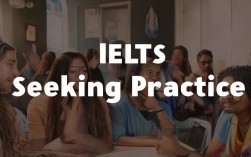托福口语考试中,"intelligence"(智力)是一个高频且内涵丰富的主题,无论是讨论个人经历、社会现象还是学术话题,考生若能围绕"intelligence"展开有深度的表达,往往能在逻辑、词汇和内容质量上脱颖而出,本文将从托福口语中"intelligence"的核心维度、高分表达策略、常见误区及实战案例四个方面,系统解析如何在这一主题下展现语言能力与思维深度。

托福口语中"intelligence"的核心维度
托福口语对"intelligence"的考察并非局限于"智商高低",而是延伸至多元智能类型、智力发展的影响因素、智能与行为的关系等层面,考生需明确以下核心维度,才能构建有层次的内容框架。
多元智能理论
传统观念将智力等同于逻辑推理和语言能力,但哈佛大学教授霍华德·加德纳的"多元智能理论"提供了更广阔的视角,他将智能分为八大类型:语言智能、逻辑-数学智能、空间智能、音乐智能、身体-动觉智能、人际智能、内省智能和自然观察智能,在口语表达中,结合这一理论可展现批判性思维,讨论"是否应重视考试成绩"时,可反驳:"Intelligence is not just about logical-mathematical abilities, as Gardner's theory suggests. A student with excellent interpersonal skills might excel in teamwork but struggle with exams, yet such social intelligence is crucial for future success."
智力的影响因素
智力的发展是先天与后天共同作用的结果,先天因素包括基因遗传(如父母智力水平对子女的影响),后天因素则涵盖教育环境(如学校资源、教学方法)、个人努力(如刻意练习、阅读习惯)和社会文化背景(如对创新思维的鼓励程度),考生在分析"如何提升智力"时,可列举具体例子:"While genetics provide a foundation, environmental factors play a more decisive role. For instance, children raised in households with rich book resources tend to develop stronger linguistic intelligence due to early exposure to diverse vocabulary."
智力与行为表现
智力的高低直接影响问题解决能力、学习效率和适应力,高智力者通常能快速分析复杂问题、提出创新解决方案,并在压力下保持冷静,在描述"一次成功解决问题"的经历时,可关联智力特质:"I once faced a technical issue during a group project. Instead of panicking, I applied logical analysis to identify the root cause and collaborated with teammates to design a workaround, which demonstrates practical intelligence in real-life scenarios."
高分表达策略:从词汇到逻辑
托福口语评分注重"delivery"、"language use"和"topic development",围绕"intelligence"主题,考生需通过精准词汇、复杂句式和清晰逻辑提升表达质量。
词汇升级:避免重复与泛化
避免反复使用"smart"或"intelligent",转而使用更具体的词汇:
- 描述智力类型:analytical intelligence(分析型智力)、creative intelligence(创造性智力)、emotional intelligence(情商,EQ)、practical intelligence(实践智力)。
- 描述智力表现:sharp mind(思维敏锐)、quick-witted(机智的)、resourceful(足智多谋的)、astute(精明的)。
表达"他很有智慧"时,可说:"He possesses remarkable emotional intelligence, enabling him to understand others' emotions and resolve conflicts effectively."
句式多样:展现语言驾驭能力
通过复合句、非谓语动词、插入语等结构,避免简单句堆砌:
- 复合句:"While some argue that intelligence is innate, research indicates that continuous learning can enhance cognitive abilities."
- 非谓语动词:"Having developed strong spatial intelligence through years of painting, she excels in architectural design."
- 插入语:"Intelligence, defined by the ability to acquire and apply knowledge, plays a vital role in modern society."
逻辑清晰:采用"总-分-总"结构
每个观点需有明确主题句、支撑细节和结论,讨论"是否应重视情商"时:
- 主题句:"Emotional intelligence is as important as academic intelligence in personal success."
- 支撑细节:"First, it helps build positive relationships—individuals with high EQ can communicate effectively and empathize with others. Second, it enhances leadership skills, as understanding team dynamics is crucial for motivating members."
- "Therefore, schools should prioritize EQ education alongside academic development."
常见误区与规避方法
考生在谈论"intelligence"时,常因认知局限或表达不当导致失分,以下误区需重点关注:
误区一:将"intelligence"等同于"academic performance"
许多考生习惯用"考试成绩好"来定义智力,忽略多元智能的内涵。规避方法:结合具体智能类型展开,"A student may not top the class in math, but if they excel in music or sports, they still demonstrate distinct forms of intelligence."
误区二:观点绝对化,忽略辩证分析
如断言"智力完全由先天决定",缺乏对后天因素的讨论。规避方法:使用"while...however..."等转折结构,体现多角度思考:"While genetics may influence intelligence to some extent, environmental factors such as education and lifestyle play a more significant role in shaping cognitive development."
误区三:例子空泛,缺乏细节支撑
仅说"爱因斯坦很聪明",未具体说明其智力表现。规避方法:添加具体细节:"Albert Einstein's analytical intelligence is evident in his development of the theory of relativity, which required exceptional logical reasoning and abstract thinking."
实战案例:托福口语独立题解析"Do you think emotional intelligence is more important than academic intelligence? Explain why."
参考回答:
"In my opinion, emotional intelligence (EQ) is more crucial than academic intelligence (IQ) for long-term success. First, EQ directly impacts interpersonal relationships, which are fundamental in both personal and professional life. For example, a manager with high EQ can understand employees' needs, resolve conflicts, and foster a positive work environment, leading to higher team productivity. In contrast, someone with high IQ but low EQ might struggle to collaborate effectively, even if they possess strong technical skills. Second, EQ helps individuals cope with challenges and setbacks. Life is full of unexpected difficulties, such as job loss or personal failures. Those with high EQ can manage stress, stay motivated, and adapt to changes, whereas individuals relying solely on academic intelligence may feel overwhelmed when facing non-academic problems. While academic intelligence is important for entering certain professions, emotional intelligence determines how well one can navigate complex social dynamics and achieve sustainable success."
相关问答FAQs
Q1: 托福口语中提到"多元智能理论"是否需要解释理论内容?
A1: 不需要详细解释,托福口语时间有限(仅45秒或1分钟),直接引用理论名称并简要关联观点即可,"As Gardner's theory of multiple intelligences suggests, intelligence includes not just academic skills but also creative and social abilities." 避免展开定义,以免占用过多时间。
Q2: 如何在口语中避免使用"smart"或"intelligent"的重复?
A2: 可通过同义词替换、具体描述或功能化表达避免重复。
- 同义词:sharp, bright, gifted, astute.
- 具体描述:"He has a quick mind for solving puzzles."
- 功能化表达:"She excels at analyzing complex data and making logical decisions." 结合具体场景选择表达方式,既能丰富词汇,又能使内容更生动。











